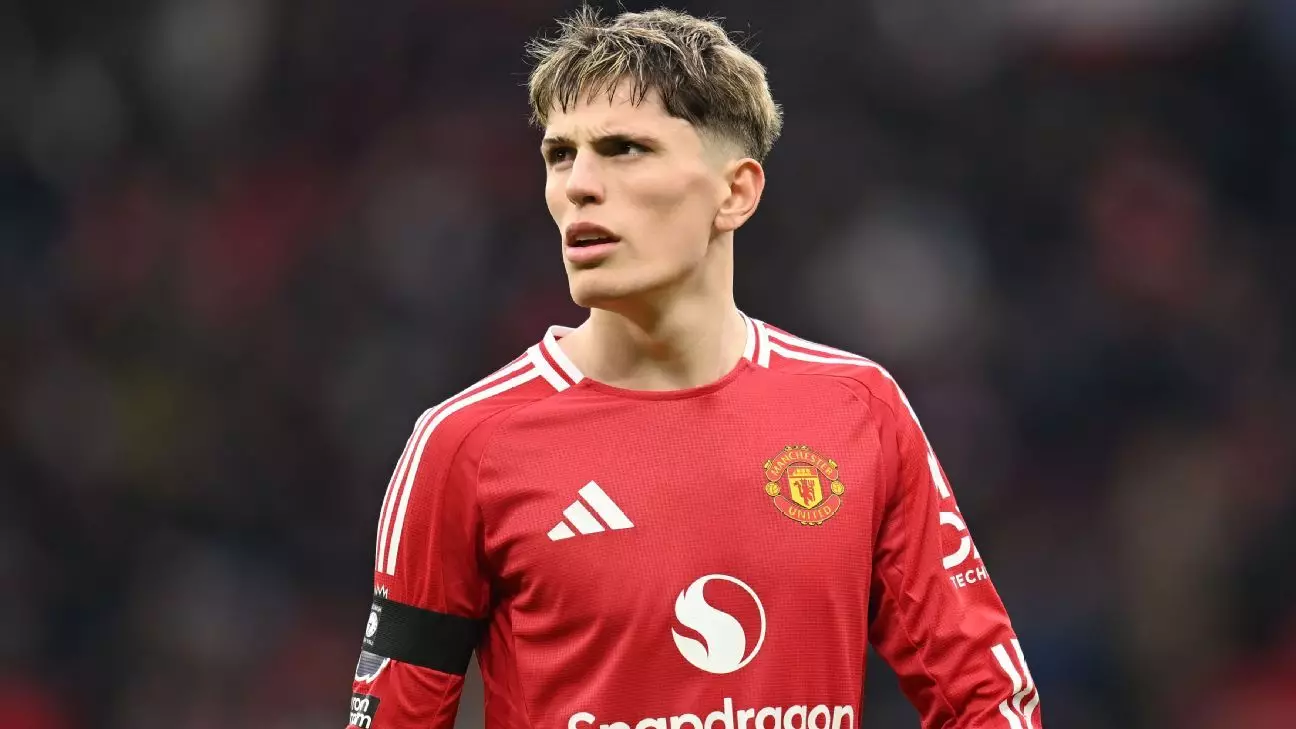Napoli’s sporting director, Gioanni Manna, has voiced the club’s frustrations regarding their recent pursuit of Manchester United’s Alejandro Garnacho. The young winger’s steep financial demands effectively derailed Napoli’s attempts to bolster their attacking options in the January transfer window, highlighting the complexities and challenges smaller clubs face in the market.
The Impact of Kvaratskhelia’s Departure
The urgency for new attacking talents at Napoli stemmed in part from the recent departure of their star winger, Khvicha Kvaratskhelia, who made a significant move to Paris Saint-Germain for €60 million (approximately $61 million). This exit not only created a gap in the squad but also elevated the pressure on the Napoli management to find immediate reinforcements. Manna confirmed that Garnacho had been on their radar even before Kvaratskhelia’s transfer, making the situation more pressing for the club.
Interestingly, Manna stated that Napoli made a robust offer to Manchester United, getting close to meeting their financial expectations for Garnacho. However, it became apparent that no agreement would be reached—not because of the transfer fee, but due to Garnacho’s salary demands. The implications of such demands are significant for a club like Napoli, which has a strict wage structure.
The Balancing Act of Player Salaries
Manna emphasized the importance of maintaining equity within the squad, arguing that bringing in a player with a substantially higher salary could create discord among existing players who contribute to the team’s success at a lower salary level. His comments reflect a broader issue that many clubs face when competing for talent: the challenge of attracting high-caliber players without upsetting team dynamics and salary structures. For a club atop Serie A, like Napoli, this balancing act becomes even more critical.
In light of these salary concerns, Manna made it clear that they are not willing to break their wage structure just to facilitate a transfer. This decision shows a commitment to the club’s financial prudence, even if it means missing out on promising young talents.
In addition to Garnacho, Napoli also attempted to secure Borussia Dortmund striker Karim Adeyemi. Yet, that deal fell through when Adeyemi made it clear he wasn’t committed to the move. Manna highlighted that they had established a potential agreement with Dortmund but respected the player’s inclination not to join now, revealing a willingness to allow players to prioritize their own decisions.
Manna’s statements suggest a broader strategy for Napoli to only pursue players who have a genuine desire to join the club, rather than those who see it as merely a stepping stone. With Adeyemi in demand by several Premier League clubs, including Liverpool and Chelsea, it underscores the competitive landscape that Napoli must navigate to attract top talent.
Despite the setbacks in the transfer market, Napoli managed to secure Switzerland’s Noah Okafor on loan from AC Milan as the transfer deadline approached. This addition could provide the much-needed firepower to navigate the challenges of the second half of the season. As Napoli strives to maintain its position at the top of Serie A, the club’s front office faces ongoing scrutiny about balancing financial prudence with the need for competitive squad enhancements.
As the January transfer window closes, Napoli’s challenges reflect a microcosm of the larger football landscape, where financial demands and player ambitions often shape a club’s fortunes both on and off the pitch.
